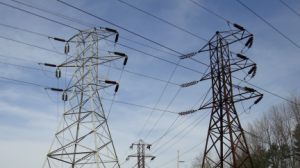One of the big business stories in Latvia this summer has been the arrest of five top directors and members of the board of Latvenergo, Latvia’s sizable state-owned electricity company, as well as a handful of other businessmen and officials. They face charges of bribery, embezzlement and money laundering worth more than €1.13 million over a period of four years. What has been less reported, however, is the story’s political dimension.
The individuals, including Latvenergo CEO Kārlis Miķelsons, were arrested by the Corruption Prevention and Combating Bureau (KNAB) on June 16. Since then, Moody’s Investors Service has moved to announce that there will be no immediate impact on the company’s credit rating, pointing out that the Economy Ministry, as the company’s major shareholder, has the situation well under control.
KNAB, which was established in 2002, is an independent public administration institution under the supervision of the Cabinet of Ministers and the prime minister. It is a pre-trial investigative body and has police powers. It likes to emphasize the fiery youthfulness of its 140 staff members, whose average age is just 35.
The corruption-busting bureau and other authorities in Latvia are keeping quiet on the details of the case. Nevertheless, the fact that Latvia’s judges to whom it initially presented the case approve of its actions shows that the evidence it has gathered must be fairly conclusive, as the asset freezing over the past weeks seems to also indicate.
KNAB is a thorn in the side of Latvia’s all-powerful oligarchs, most of whom have strong political as well as financial interests. The People’s Party, founded by two-time prime minister Andris Šķēle, one of the wealthiest people in the country, managed to successfully remove the bureau’s energetic former chief Aleksejs Loskutovs in 2007.
Political commentators have speculated that the new chief, Normunds Vilnītis, was politically appointed to carry out the orders of the oligarchs and get rid of the bureau’s highly regarded deputy director Juta Strīķe. This has effectively, and somewhat absurdly, created two sets of KNAB employees – those loyal to Vilnītis and those loyal to Strīķe.
It was on the very morning that Prime Minister Valdis Zatlers called in Vilnītis to discuss this matter that KNAB, evidently under the orders of Strīķe, moved in to arrest Latvenergo’s management – including Miķelsons, known to be a close associate of Šķēle’s.
It is now up to investigators to untangle the web of corruption created over the years at Latvenergo and its subsidiaries. This may include the process of the full privatization of the heating facility Rigas siltums to the French-owned energy management company Dalkia, which currently owns 2 percent of Rigas siltums. Guntars Kokorevics, Dalkia’s chief representative in Latvia, commented in March that full privatization was only a matter of time.
Miķelsons and two others remain in custody while the rest have been released pending trial. All of those who were arrested maintain their innocence. Besides Miķelsons, they are Latvenergo Vice President Aigars Meļko, Latvenergo subsidiary Sadales tīkls board members Ivars Liuziniks and Andrejs Stalažs, Sadales tīkls Technical Director Edgars Vitkovskis, Buvenergoserviss CEO Mihails Paladijs and former board member Andrejs Livanovičs, and Daugavpils businessman Mihails Paladijs.
Disclaimer:
Views expressed in the opinion section are never those of the Baltic Reports company or the website’s editorial team as a whole, but merely those of the individual writer.













